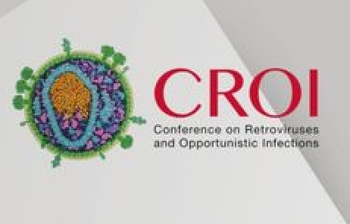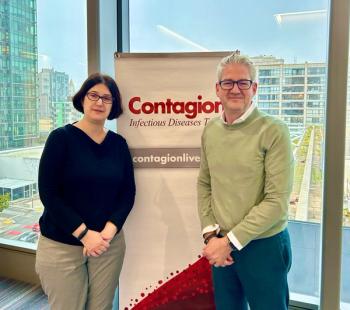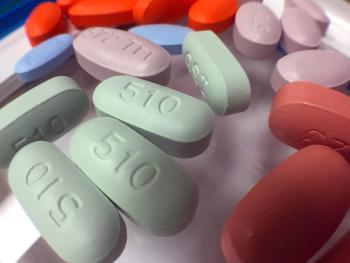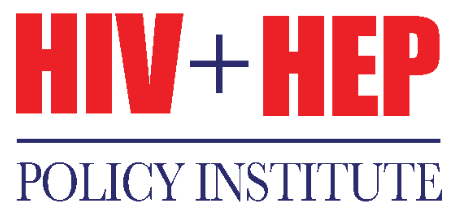
HIV / AIDS
Latest News
Latest Videos

CME Content
More News

As the cohort of people living with HIV in the US ages, HIV care programs must rapidly adapt to the changing needs of older adults with HIV.


To meet ambitious targets for ending the HIV/AIDS epidemic, governments must unite in a global effort to improve access to CD4 testing.

Theratechnologies' new tesamorelin formulation provides a simplified, long-acting dosing regimen to effectively manage excess abdominal fat in adults with HIV-associated lipodystrophy.

A new analysis raises concerns over the stoppage of funding for this long-standing program, which could have major impacts on global public health for years to come.

The 15th anniversary of the Affordable Care Act is overshadowed by threats to HIV prevention efforts, including a looming Supreme Court case that could eliminate no-cost access to preexposure prophylaxis and other preventive services. Simultaneously, deep federal cuts and restructuring have destabilized critical public health infrastructure, jeopardizing decades of progress in the fight against HIV.

Studies presented included once-yearly lenacapavir formulations for PrEP, bictegravir outperforming darunavir in advanced HIV, Immunocore's IMC-M113V showing viral control and reservoir reduction, and more.

Rachel A Bender Ignacio, MD, MPH explores safety, pharmacokinetics, and future directions for HIV treatment.

Anchalee Avihingsanon, MD, PhD presents results showing 95.4% HIV RNA suppression and 86.6% HBV DNA suppression after 48 weeks of B/F/TAF in HIV-HBV co-infected patients.

David Berman, MD, PhD, discusses signs of dose-dependent viral control and reduction in active HIV reservoir in Phase 1/2 STRIVE trial data.

Phase 1 data on VH184, a third-generation integrase strand transfer inhibitor, and VH499, a novel HIV-1 capsid inhibitor, highlighting their antiviral potency, safety profiles, and potential for long-acting injectable formulations.

Carl Schmid, executive director, HIV + Hepatitis Policy Institute, explains how a Supreme Court case could have far reaching implications for greater health screenings and preventative services beyond HIV and hepatitis.

A coalition of employers, the US Business Action to End HIV, sent a letter to Congress outlining the continued need for support from the federal government.

New data at CROI 2025 shows zero cases of HIV acquisition reported with Apretude (cabotegravir long-acting (CAB LA) for PrEP in varied clinical settings and populations in 2 implementation studies in the US and Brazil.

Sarita Shah, MD, MPH, reveals a decline in timely ART initiation from 86.5% in 2019 to 83.9% in 2020, with viral suppression rates dropping from 91.1% to 84.7%, before showing signs of recovery by 2021.

Colleen Kelley, MD, MPH, offers some insights on where we are today with the state of HIV prevention including the expanding PrEP options, why PEP is underutilized, and the challenges behind HIV vaccine development.

Thumbi Ndung'u, BVM, PhD discussed the safety and partial virologic control observed in a Phase 2a trial using broadly neutralizing antibodies and vesatolimod in HIV treatment interruption.

In a blinded phase 3 study, doravirine and islatravir was compared to antiretroviral therapy, BIC/FTC/TAF (Biktarvy), and it was shown that there was no between-group differences in mean change in CD4 T-cell or total lymphocyte count at week 48.

In a long-acting dose regimen, an investigational antibodies treatment is a potent antiviral that can function as a component of a complete antiretroviral regimen.

Georg Behrens, MD, PhD, highlights superior virological suppression and immune recovery with bictegravir-based therapy in therapy-naïve individuals with advanced HIV disease.

In a small study, investigators found they could reduce the antiretroviral therapy (ART) dosing to longer durations and the treatment remained safe and efficacious.

New pharmacokinetic data, shared by Moupali Das, MD, MPH, reveal long-lasting plasma concentrations, surpassing twice-yearly subcutaneous formulation for HIV prevention

Beatriz Mothe, MD, PhD discusses the Phase 1/2 STRIVE trial of IMC-M113V, a T cell receptor bispecific therapy targeting HIV-infected cells

Joseph Cherabie MD, MSc, explains the importance of how these 2 components go hand-in-hand, and what it means to continue forward in spite of being in an unpredictable time.

Kellie Hawkins, MD discusses the findings along with the challenges of diagnosing Long COVID in people with HIV, emphasizing the need for improved clinical recognition and education.











































































































































